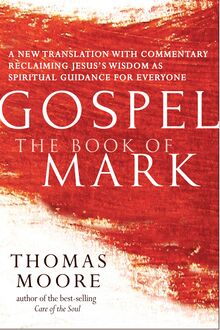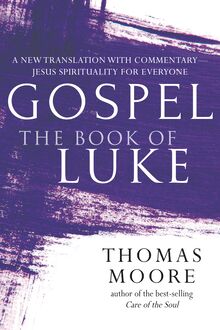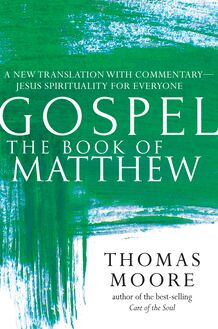-
 Univers
Univers
-
 Ebooks
Ebooks
-
 Livres audio
Livres audio
-
 Presse
Presse
-
 Podcasts
Podcasts
-
 BD
BD
-
 Documents
Documents
-
- Cours
- Révisions
- Ressources pédagogiques
- Sciences de l’éducation
- Manuels scolaires
- Langues
- Travaux de classe
- Annales de BEP
- Etudes supérieures
- Maternelle et primaire
- Fiches de lecture
- Orientation scolaire
- Méthodologie
- Corrigés de devoir
- Annales d’examens et concours
- Annales du bac
- Annales du brevet
- Rapports de stage
La lecture à portée de main
Vous pourrez modifier la taille du texte de cet ouvrage
Découvre YouScribe en t'inscrivant gratuitement
Je m'inscrisDécouvre YouScribe en t'inscrivant gratuitement
Je m'inscrisEn savoir plus
Vous pourrez modifier la taille du texte de cet ouvrage
En savoir plus

Description
- Blogger outreach.
- Social Media campaign on Facebook and Twitter.
- Email marketing campaign to Turner Publishing subscribers.
- Free Book Friday giveaway.
- Website marketing on TurnerPublishing.com.
In his fresh and life-giving translation of the Gospels with sparkling commentary, spiritual innovator Thomas Moore strips the Gospels of their theological agendas and reclaims them as a fundamentally new way of imagining human life. He blends scholarship and pastoral guidance to highlight the Gospels’ teachings on earthly, rather than otherworldly, living in which community, compassion, inclusiveness, prayer and healing are key elements. He draws deeply from Greek philosophy, literature and spirituality to craft an accurate and challenging yet accessible translation that, free of religious moralism and dogmatism, is beautifully imaginative and inspirational. Be inspired to live an altogether different kind of life rooted in a more radical kind of love.
Sujets
Informations
| Publié par | Turner Publishing Company |
| Date de parution | 21 novembre 2017 |
| Nombre de lectures | 3 |
| EAN13 | 9781684429110 |
| Langue | English |
| Poids de l'ouvrage | 2 Mo |
Informations légales : prix de location à la page 0,1000€. Cette information est donnée uniquement à titre indicatif conformément à la législation en vigueur.
Extrait
Volumes in
Thomas Moore’s
GOSPEL
New Translations with Commentary—
Jesus Spirituality for Everyone
THE BOOK OF MATTHEW
THE BOOK OF MARK
THE BOOK OF LUKE
THE BOOK OF JOHN
A NEW TRANSLATION WITH COMMENTARY— JESUS SPIRITUALITY FOR EVERYONE GOSPEL THE BOOK OF LUKE
THOMAS MOORE
Walking Together, Finding the Way ®
SKYLIGHT PATHS ®
PUBLISHING
Nashville, Tennessee
SkyLight Paths Publishing
an imprint of Turner Publishing Company
Nashville, Tennessee
New York, New York
www.skylightpaths.com
www.turnerpublishing.com
Gospel—The Book of Luke:
A New Translation with Commentary—Jesus Spirituality for Everyone
2018 Hardcover, First Printing
© 2018 by Thomas Moore
All rights reserved. No part of this book may be reproduced or reprinted in any form or by any means, electronic or mechanical, including photocopying, recording, or by any information storage and retrieval system, without permission in writing from the publisher.
For information regarding permission to reprint material from this book, please write or fax your request to Turner Publishing, Permissions Department, at 4507 Charlotte Avenue, Suite 100, Nashville, Tennessee 37209, (615) 255-2665, fax (615) 255-5081, or email your request to submissions@turnerpublishing.com .
Library of Congress Cataloging-in-Publication Data
Names: Moore, Thomas, 1940- translator, commentator.
Title: The book of Luke : a new translation with commentary; Jesus spirituality for everyone / Thomas Moore.
Other titles: Bible. Luke. English. Moore. 2017.
Description: Nashville, Tennessee : Turner Publishing, 2017. I Series: Gospel | Includes bibliographical references.
Identifiers: LCCN 2017042983 | ISBN 9781594736384 (hardcover)
Subjects: LCSH: Bible. Luke--Commentaries.
Classification: LCC BS2593 .M66 2017 I DDC 226.4/05209--dc23
LC record available at https://lccn.loc.gov/2017042983
10 9 8 7 6 5 4 3 2 1
Cover Design: Jenny Buono
Interior Design: Tim Holtz
To Abe
Contents Introduction to Gospel Introduction to the Book of Luke Chapter 1 Chapter 2 Chapter 3 Chapter 4 Chapter 5 Chapter 6 Chapter 7 Chapter 8 Chapter 9 Chapter 10 Chapter 11 Chapter 12 Chapter 13 Chapter 14 Chapter 15 Chapter 16 Chapter 17 Chapter 18 Chapter 19 Chapter 20 Chapter 21 Chapter 22 Chapter 23 Chapter 24 Acknowledgments Notes Suggestions for Further Reading About the Author
Introduction to Gospel
Why a New Translation?
In my travels I have met many people who grew up hearing the Gospels in church and have now moved on in a different direction. Some have found their religion outmoded or just do not feel like participating any longer. Some have been offended, like many women who find formal religion sexist. Others are attracted to altogether different traditions, and some do not see the point of religion at all.
Many told me they missed the stories and the teachings, and wished they could have a better, more up-to-date understanding of them. I have heard from other people who did not have a Christian background and wondered if the Gospels could add to their more open-ended spiritual path. I have strong empathy for both positions and wanted to present the Gospels in a way that would speak to both.
Some Christians, both traditional and independent, expressed their fervent curiosity about how I might understand the teachings, given my unusual background as a monk, a student of world religions, and a depth psychotherapist. I felt their eagerness and sincerity when they asked me to recommend a good translation. I could not direct them without reservation to any translation that I knew and trusted, so the idea of my own version took root.
Another reason I felt it was time for a new version was my frustration at seeing faulty religious ideas, specifically about the teachings of Jesus, dragging down important political advances in our society. You do not have to look far beneath the headlines to see uninformed, emotional, and sentimental notions of Jesus’s philosophy. Today we cannot afford to keep referring to outmoded and faulty versions of Jesus’s teachings and using them to support questionable causes.
In the end, I wanted to make the Gospels accessible and attractive to all sorts of readers. I see no indication that Jesus intended to create a religion or a church. His purpose is clear: He wanted to raise human awareness and behavior to another level, where it would surpass its tendencies toward self-interest, xenophobia, greed, religious moralism, and an emphasis on insignificant rules. He imagined a more just and pleasurable world, a “kingdom of the sky.” He was explicit in instructing his students to speak to everyone, not just members of some particular and chosen religious group.
In my translation there is no suggestion that readers should believe in anything, join an organization, or abandon their cherished religious and philosophical ideals. I see no reason why a Christian, an agnostic, a Buddhist, or even an atheist would not be charmed and inspired by the Gospels. Anyone can freely and without any worries read the Gospels and be enriched.
These texts are sacred not because they belong to a particular religion or spiritual tradition but because they offer a vision and a way of life that transcends the limits of reason and will. They show a figure in love with life and with a heart open to all sorts of people, but at the same time a figure constantly in tune with the Sky Father, that image of ultimate transcendence that provides an opening, a tear in the fabric of human consciousness, a doorway to the infinite and the eternal.
The Gospels are not just books of practical wisdom—how to live more effectively. They are also books of mysteries, assuming that to be fully human we have to open ourselves to the mysterious depth and height of the world that is our home.
Who Was Jesus?
It is a simple question, isn’t it? Who was Jesus? But the debate over the historical Jesus has been raging for at least two centuries. There is not much factual material to go on, and though the Gospels often sound like biography or history, clearly they are largely stories told to evoke a religious milieu. Historically, they are full of contradictions and gaps and fantasy material. This does not make them worthless in themselves. On the contrary, they are marvelous, simply ingenious inventions for spiritual teaching, but as history they are unreliable, to say the least.
It appears that Jesus was born around 4 BCE, when Romans were occupying the Mediterranean area of Jesus’s birth and travels. Herod the Great was king, having been installed by the Romans. Greek language and culture were strong in the area, and Egypt, with its colorful past and rich spiritual culture, was not far away. There is evidence of a temple to the Greek god Dionysus in Jesus’s area, and yet he was also dealing daily with Jewish teachings, customs, and rules. The Gospels portray many verbal skirmishes between Jesus and leaders, religious and social, who spoke up for Jewish law and tradition.
Jesus taught in the synagogues and to some appeared to be the long-awaited Messiah, the anointed leader of a new Jewish order. Many events and sayings in the Gospels echo Hebrew Bible writings, suggesting a layer of Messiah in Jesus’s words and actions. But this aspect also casts a shadow on Jesus’s presence and work, leading to the notion that he was “king of the Jews” and therefore a threat to Roman, local, and religious authority. Jesus was executed somewhere around 30 BCE, perhaps in his early thirties.
It is often said that people who read the Gospels see in them the Jesus they want to see. Some understand him to be a religious reformer, some a social rebel, and some the founder of a religious tradition. He is sometimes described as a teacher of wisdom, a label that comes close to my own view but is not quite serious enough. I see him more as a social mystic, like a shaman who can heal and lead people to appreciate multiple layers of reality.
At his baptism, the sky opens and the Sky Father speaks favorably of him, essentially blessing him. For me, this is a key moment, because Jesus is forever talking about his Father in the Sky, calling on us to always live in relation to that transcendent realm as well as in the present moment where our goodwill and powers of healing are always needed.
Jesus also has a relationship to the dead, and his own death is always looming. So in the end we have a Jesus who, as shaman and mystic, speaks and acts from the plane of daily life, from the transcendent level of the Father, and in the realm of the dead. He offers more than lessons in practical wisdom. His is a profound mystical vision that combines social action, based on the principle of friendship and not just altruism, with an all-encompassing mystical awareness of timeless realities and sensibilities.
Some think that Jesus wanted to create a religion or a church. Some think he was often speaking about the afterlife. In my translation and commentary, I move in a different direction. I think he was trying to convince people to live in an entirely different way, reflecting basic values of love and community, instead of self-interest and conflict. He suggested keeping the highest ideals in mind, instead of merely trying to amass money and possessions. He spoke and acted contrary to moralistic laws and customs, and showed in his manner of living that friends and good company were worth more than pious activities. He told all his students to be healers and to help people rid themselves of compulsive behaviors. Above all, he suggested that we break down all the artificial boundaries set up between religions and cultures and live as though we were all brothers and sisters. “Who is my family?” (Matthew 12:48), he asks, and he points to the students and others gathered around him.
What Is a Gospel?
The story of Jesus’s life and teachings was written down, after a fairly long period of oral storytelling, by many writers,
-
 Univers
Univers
-
 Ebooks
Ebooks
-
 Livres audio
Livres audio
-
 Presse
Presse
-
 Podcasts
Podcasts
-
 BD
BD
-
 Documents
Documents
-
Jeunesse
-
Littérature
-
Ressources professionnelles
-
Santé et bien-être
-
Savoirs
-
Education
-
Loisirs et hobbies
-
Art, musique et cinéma
-
Actualité et débat de société
-
Jeunesse
-
Littérature
-
Ressources professionnelles
-
Santé et bien-être
-
Savoirs
-
Education
-
Loisirs et hobbies
-
Art, musique et cinéma
-
Actualité et débat de société
-
Actualités
-
Lifestyle
-
Presse jeunesse
-
Presse professionnelle
-
Pratique
-
Presse sportive
-
Presse internationale
-
Culture & Médias
-
Action et Aventures
-
Science-fiction et Fantasy
-
Société
-
Jeunesse
-
Littérature
-
Ressources professionnelles
-
Santé et bien-être
-
Savoirs
-
Education
-
Loisirs et hobbies
-
Art, musique et cinéma
-
Actualité et débat de société
- Cours
- Révisions
- Ressources pédagogiques
- Sciences de l’éducation
- Manuels scolaires
- Langues
- Travaux de classe
- Annales de BEP
- Etudes supérieures
- Maternelle et primaire
- Fiches de lecture
- Orientation scolaire
- Méthodologie
- Corrigés de devoir
- Annales d’examens et concours
- Annales du bac
- Annales du brevet
- Rapports de stage








